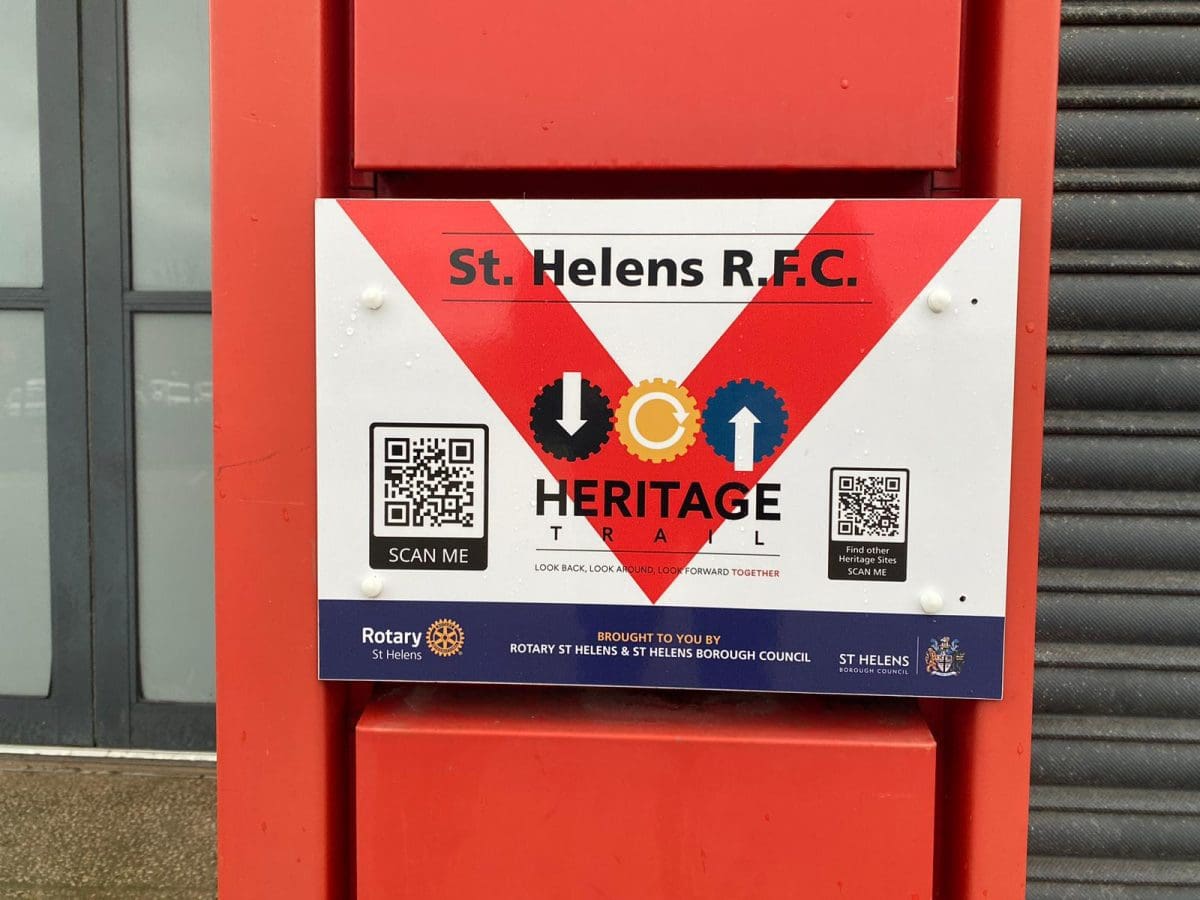St Helens Rotary Club and St Helens Council are installing a dozen plaques around St Helens town centre to create a heritage trail to celebrate the town's proud history.
St Helens R.F.C were honoured when a plaque was unveiled at our Totally Wicked Stadium back in October as part of the club’s 150th anniversary celebrations and fans can scan the QR code of the plaque, which is located at the front of the stadium, to learn all about the history of the town. Alternatively you can click here to learn more.

In a partnership between St Helens Borough Council and St Helens Rotary Club, the initiative is a bold and ambitious vision for the borough’s heritage over the next 10 years.
The first of 12 plaques, each containing a QR code for people to scan to obtain key historic information, was launched at the ‘Hotties’ – a section of Sankey Canal, England’s first canal of the Industrial Revolution which opened in 1757 to carry coal.
Further plaques are planned for the iconic Gamble Building, Beecham Building, St Helens Town Hall, Central Station, Parish Church, Quaker Meeting House, Cannington Shaw, St Helens and Runcorn Gap Railway – and in the middle of St Helens town centre where heritage and culture will play a key role in once-in-a-lifetime regeneration plans.
Once all 12 plaques have been installed, other locations outside St Helens town centre will be explored, including churches, former mining sites and ward areas with rich heritage.
Councillor Anthony Burns, St Helens Borough Council’s Cabinet Member for Wellbeing, Culture and Heritage said: “St Helens borough is built on heritage and has been at the forefront of significant moments throughout British history. From the birthplace of the railway and first modern canal to innovators in glass and pharmaceuticals – and of course, home to the most successful rugby league team in the Super League era – so it’s absolutely right that these achievements should be celebrated and on display for all to see.”
“By 2030, we want to have achieved national and international recognition for the significance, quality and management of our heritage assets, attractions, and infrastructure – and initiatives like this are a big step forward in the right direction.”
Stephen Culley, of St Helens Rotary Club added: “The purpose of the St Helens Heritage Trail is to increase the whole community’s awareness of how St Helens became a unique, pioneering and innovative industrial town taking its place on the world stage. It is hoped that the trail will stir up a sense of identity, self-worth and hope throughout the borough. It can also serve to benefit our local economy by attracting more visitors.”



















































